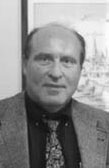



Ernst Zundel Full name: Ernst Christof Friedrich Zundel Full name: Ernst Christof Friedrich ZundelYear of Birth: 1939 Place of residence: Tennessee, United States, formerly Toronto, Canada Web site: The Zundelsite Since the mid-1970s, Ernst Zundel has been arguably the leading Holocaust denial propagandist in the world. Although he does not conduct his own 'revisionist research', he has nonetheless consistently succeeded in spreading his claims in the media more successfully than any other denier, with the possible exception of David Irving. Born in southwestern Germany, Zundel emigrated to Canada in 1958, choosing it for his much-vaunted pacifist beliefs. In Canada he became an admirer and follower of French-Canadian fascist Adrien Arcand, to whom Zundel credits his 'revisionist' education. In what he cites as being evidence of the conspiracy against him, Zundel ran for the leadership of the Liberal Party - despite not being a Canadian citizen - in the late 1960s, and did not receive a single vote. In the mid-1970s, Zundel again featured in the Canadian media, this time promoting his lobby group "Concerned Parents of German Descent". Under this guise, Zundel sought to have the televsion series Holocaust banned from broadcast. More bizarrely, Zundel was interviewed frequently for his claim that UFOs were not alien spacecraft, but were actually Nazi secret weapons that flew from a hidden base in the Antarctic. Indeed,as recently as 1999, Zundel was still selling his publication UFOs: Nazi Secret Weapons? - proudly, it must be said. The 1980s saw Zundel the focus of more media attention than he had ever achieved previously or since. In 1983, Sabina Citron, a Holocaust survivor living in Toronto, launched a suit against Zundel, which the Crown took over, accusing him of spreading 'false news' in two publications, namely Did Six Million Really Die? and The West, War and Islam. The law, long since struck off law books in other Commonwealth countries, enabled prosecution of persons accused of spreading information that they knew to be false. In 1985, Zundel came to trial, supported by a menagerie of Holocaust deniers. Following a much-publicised trial, during which the Canadian media was accused of sensationalising the case by printing ill-conceived articles about defence testimony, Zundel was found guilty. During it, Zundel's fellow deniers were given free reign to dispute legitimate Holocaust historiography. Conviction notwithstanding, Zundel claimed that he had received "millions of dollars" of free publicity. He appealed, and the conviction was overturned on the basis of a procedural error the presiding judge made. In 1988 Zundel's retrial happened. On this occasion, the media - much to Zundel's disgust - did not report as frequently or in the same way as during the first trial (the case was no longer considered to be newsworthy). On this occasion, the presiding judge ruled that as the Holocaust was accepted fact, the trial took a different path to the first. The trial was most notable for two reasons: firstly, Zundel commissioned Fred Leuchter to produce a pseudo-scientific 'report' that 'proved' that the gas chambers at Auschwitz I, Auschwitz-Birkenau and Majdanek did not exist. Secondly, the trial marked the complete entry of David Irving into the Holocaust denial movement. Zundel was again found guilty; however, on this occasion, in 1992, Zundel's conviction was overturned because the 'false news' law, under which he was charged, was deemed unconstitutional, and he therefore had no charge to answer. During the early 1990s,Zundel was an active participant in the so-called 'international revisionism campaign', He has arrested in Munich the day before the 'Leuchter Congress' in March 1991, and released following it. Through his German representative Ewald Althans, Zundel sought to influence the German neo-Nazi scene, claiming to have featured prominently, for instance, in the organisation of the Rudolf Hess memorial marches in the town of Wunsiedel in the early 1990s. Following Althans's arrest for his denial of the Holocaust, Zundel abandoned his apprentice. In the search for new ways to publicise his claims, Zundel has used a variety of methods to so do. In the 1970s, he used talkback radio. In the 1980s, his trials served as his mouthpiece. In the 1990s, however, Zundel tried a number of methods - some more successful than others. He used shortwave radio, broadcast from radio stations that would accept his money, community cable television stations, and most notably, the Internet. In the second half of 1995, Zundel (through computer-literate supporters) created the Zundelsite. Ever the optimist, Zundel claims that through it, he attracted not only a far greater number of people than he could ever had using other methods, he also attracted a better calibre of person. He did, however, attract an attempt from German authorities to block access to his web site for users of the state-run Internet service provider. The attempt failed, and Zundel received more publicity. In 1997, Zundel denied all connection to the web site because the Canadian Human Rights Commission (CHRC) instigated a racial hatred case against him, on the basis of the content of the site. Zundel alleged that Ingrid Rimland, then merely an admirer of him, now his wife, created the site of her own volition. In early 2002, Zundel left Canada for the United States, as he realised that he was about to lose the CHRC case against him. Since his departure, Zundel's public activity has decreased, although he still produces his monthly English and German-language newsletters for his hardcore supporters. |